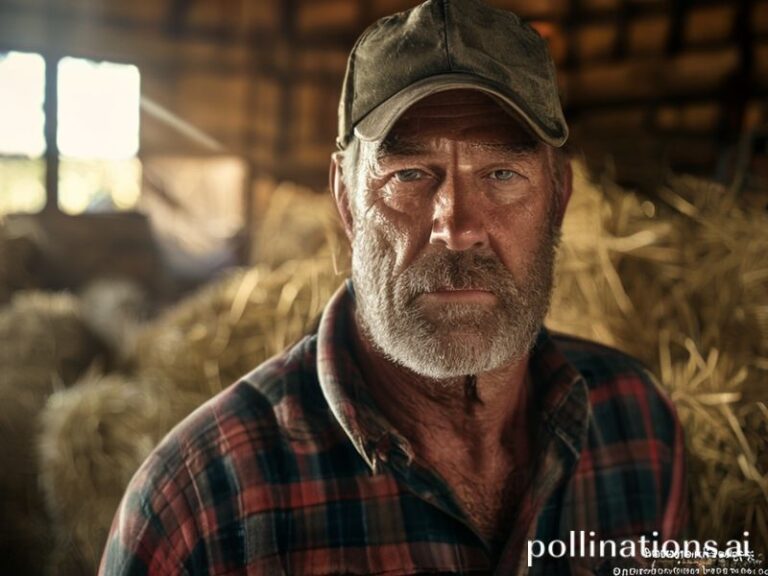Lewis Capaldi: Scotland’s Premier Export of Heartbreak and How the World Became Addicted
Lewis Capaldi: The Glaswegian Sad-Boy Export the World Didn’t Know It Needed
By Dave’s Locker, Global Emotional Trade Correspondent
Somewhere over the Atlantic right now, a 737 is ferrying a Scottish man who looks like the before-picture in a hair-loss commercial and sings like every pub in Britain just called last orders. Lewis Capaldi—26, self-deprecating to the point of self-immolation—has become the planet’s official supplier of tear-stained choruses, a one-man OPEC of heartbreak who pumps raw grief into Spotify pipelines faster than Brent crude. From Manila karaoke bars to Lagos Uber rides, strangers who can’t pronounce “Clydebank” are belting “Someone You Loved” with the same commitment they reserve for national anthems and TikTok dances.
How did we arrive at this moment when the global emotional reserve currency is a bloke who apologises mid-song for ruining everyone’s night? The short answer is algorithmic inevitability: streaming platforms discovered that melancholy scales better than joy, and nothing travels like a breakup ballad delivered in a regional accent. The long answer involves Brexit, pandemic loneliness, and the collective realisation that the twenty-first-century economy runs on data, lithium, and songs that make 19-year-olds text their exes at 2:14 a.m.
Capaldi’s ascent coincided with the great softening of geopolitics. While leaders weaponised trade routes and vaccine patents, the public quietly voted to import a Scot who admits he’s “a potato with anxiety.” His 2019 debut album, Divinely Uninspired to a Hellish Extent—an elegant way of saying “life is mostly filler”—went platinum in 17 countries, proving that existential dread is the one product the WTO can’t tariff. In South Korea, fans call him “the crying bear”; in Brazil, he’s “suco de tristeza” in human form. The UN has yet to issue a statement, but give it time.
There’s a darker subplot, of course. Capaldi’s Tourette’s diagnosis and recent admission that fame is “absolutely frying” his nervous system fits neatly into the modern content model: authenticity extracted, monetised, then recycled as memes. Netflix is already optioning the documentary in which he sobs into a hoodie while investors calculate Q4 projections. Meanwhile, the same tech bros who brag about micro-dosing enlightenment are micro-dosing his trauma for playlist placement. Call it late-stage capitalism’s greatest magic trick: turning panic attacks into per-stream micro-payments.
Yet the export is oddly stabilising. In a world fracturing along every conceivable axis—climate, culture, crypto—Capaldi offers the rare commodity of shared vulnerability. When he forgets lyrics onstage (a recurring bit that may or may not be a bit), audiences from Sydney to Stockholm finish the line for him, creating momentary communes of the chronically disappointed. It’s not quite the brotherhood of man, but it’s cheaper than therapy and comes with confetti cannons.
Even diplomacy has taken note. Rumour has it British trade envoys now slip a USB of “Before You Go” into gift bags, softening the blow as they explain post-Brexit import paperwork. If soft power were measured in Spotify streams, Westminster would be parading Capaldi down the Thames on a barge like a melancholy Nelson.
The numbers, naturally, are obscene. Nearly 12 billion streams, a Glastonbury sing-along that registered on nearby seismographs, and a world tour so carbon-intensive it may single-handedly melt what remains of the Arctic. Fans call it catharsis; Greta Thunberg calls it a climate crime. Somewhere between those poles lies the truth: we are paying record labels to help us cry in Dolby Atmos while the ice caps file for divorce.
Conclusion: Lewis Capaldi is not a pop star so much as a multinational coping mechanism, the musical equivalent of doomscrolling with a nicer melody. He reminds us that globalisation isn’t just container ships and semiconductor shortages—it’s also the quiet, relentless circulation of sadness, packaged in three-minute increments and delivered to every corner of the map. If that sounds bleak, well, welcome to the supply chain. At least the soundtrack’s decent.







